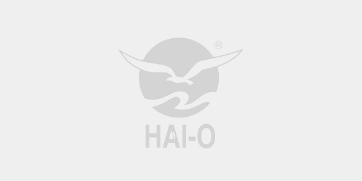Companies with substantial free cash flow which they rightly dividend out to their shareholders are rewarded with a defensive, and often a rising, market capitalisation even as many other companies evaporate in value.
After the Asian financial crisis in 1998, regulations in the capital markets were tightened so as to deter abuses by major shareholders of listed companies and to regain the favour of foreign fund managers.
It is disheartening that in the last one year, there have been numerous small companies and even one big company that delayed submission of financial results, followed by large unexplained losses. There were also startlingly large restatements of earnings that became losses after external audits.
As these mainly involved small companies on the second board or mesdaq market, their transgressions have caused a loss of confidence and capital for retail investors.
Fortunately, there are many more companies, especially the big ones, which are managed for the benefit of all their shareholders. There are also a number of small companies that have done so too.
One of these is Chinese herbal and direct-selling group Hai-O Enterprise Bhd that, until October last year, was still listed on the second board. It grew enough to graduate to the main board and currently has a market capitalisation (cap) of about RM330mil at its price of RM3.94 on Friday.
It got there from a market cap of about just RM70mil when its share price averaged 80 sen in 2005, adjusted for a bonus issue last year.
That meant that Hai-O's market cap and share price have almost quintupled in less than three years.
That rose on the back of its earnings that increased nine-fold from RM5.6mil in its financial year ended April 2005 to RM48.5mil in April 2008.
More importantly, the company has made generous payouts of its profits to shareholders. Thus, in its latest financial year, it announced a final gross dividend of 32% that together with an interim gross dividend of 8% brought the year's dividend to 40%.
In addition, it will distribute one treasure share for every 25 existing shares held, which is equivalent to a dividend of 4%. Hence, the dividend for its April 2008 financial year will effectively be 44%. That works out to a gross yield of 11%.
That also explains the fact that Hai-O's price has risen to near its record high of RM4.02 last month even though the overall market has been falling.
The same factor supports the share price of Public Bank Bhd at the RM10 level at which its yield was forecast at about 9% to 10% by analysts.
There is support for the prices of these stocks because if say, Hai-O's price were to drop 50% like a lot of small cap stocks, its yield would rise to 20%. That is unconceivable, and unprecedented.
The risks to these stocks would not be market sentiment but consumer sentiment which could adversely impact their revenue, and hence, earnings and yield.
A high yield is defensive in the stock and demonstrates good corporate governance and an efficient business model.
Consumer crisis
The latest survey results of the Malaysian Institute of Economic Research (Mier) on consumer sentiment would remind companies like Public Bank and Hai-O to watch their retail revenue.
Mier's consumer sentiment index slumped to an all-time low in the second quarter, lower than even the previous low in the second quarter of 1998 at the time of the Asian financial crisis.
That sounds like an over-reaction because there was a recession in 1998 compared with economic growth at this time. It is believed none of the economists have forecast a recession here although the “R” word has started to be used in Europe and continues to be discussed in the US.
Understandably, there is reason for consumer sentiment to be gloomier now than in 1998.
It was after all a financial crisis at that time 10 years ago, which was a crisis faced by businessmen and companies with large bank borrowings. Most workers held their jobs and inflation was low.
This time, it is a consumer crisis, one in which ordinary households have to contend with high prices for food and fuel.
It remains to be seen when this time of stress will pass. As for companies, this is the time for the marketing people, not the corporate people. They will have to price their products right for receptive market segments so as to maintain sales.
Private pursuits
Interest in controlling shareholders to take their public-listed companies private emerged again last week.
Harrisons Holdings (M) Bhd announced it was the subject of a conditional take-over offer from its major shareholder, the Bumi Raya Utama group of Indonesia.
This shows that some or many of the companies on Bursa Malaysia have fallen so much in value that their major shareholders are keen to buy up all the shares.
The offer for Harrisons was triggered when Bumi Raya acquired an additional 12.7% stake at RM1.20 a share, which raised its direct holding in the former from 24.1% to 36.8%. That crossed the 33% threshold when a mandatory general offer or MGO must be made.
Bumi Raya appears eager to take Harrisons private. In the event the condition of securing a stake of over 50% is met, Bumi Raya made clear it does not intend to maintain the listing of Harrisons on Bursa.
The MGO was made at RM1.20, the same price Bumi Raya paid for the 12.7% block. Surprisingly, the price went up above this, closing at RM1.22 on Friday.
The offer price is good value for a long-term owner like Bumi Raya. Harrisons' net profit surged 65% to RM6.4mil or earnings per share of 10 sen in its first quarter ended March 31, 2008. It attributed that improvement to higher revenue in its fast moving consumer goods division, its principal business.
In addition, Harrisons has seen rising earnings in each of the last five years. Its net profit rose from RM8.3mil in 2003 to RM10.4mil in 2004, RM12.0mil in 2005, RM13.2mil in 2006 and RM18.1mil last year.
Further, it has a clean balance sheet, with cash of RM68mil and investments in quoted shares and unit trusts of over RM10mil, against borrowings of RM45mil, probably for working capital.
Harrisons has a market cap of just RM77mil, which means it'll take less than RM50mil for Bumi Raya to take it private.
That will be easy for Bumi Raya which has diversified interests in trading, mining, manufacturing, plantations and property investments in Indonesia. It was also known as the owner of Wisma Nusantara, the former Wisma Supreme, in Kuala Lumpur.











